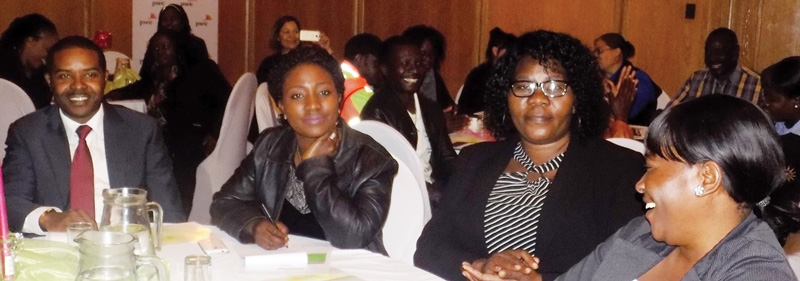
SADC Executive Secretary highlights milestones on journey to regional integration

Tremendous progress has been made in a number of areas in the quest for regional integration, according to SADC executive secretary Dr. Stergomena Lawrence Tax, on the occasion of the the official opening of the SADC Council of Ministers in SA on Monday.
The main objective of this Council of Ministers meeting is to receive progress on the implementation of the 2017/18 Plan, and to consider the proposed Plan and Budget for 2018/19.
In a statement she delivered to the delegates, Tax said in line with the 37th SADC Summit theme of “Partnering with the private sector in developing industry and regional value-chains”, value chains in areas that were profiled in 2016/17, namely mining, pharmaceuticals and agro-processing sectors, were identified.
“The priority value chains identified in the following sub-sectors are: Leather, Soya, Aquaculture, Iron and Steel, Copper, Cement and ARV manufacturing. In the coming financial year, detailed mapping and feasibility studies on each of these identified value chains will be undertaken, based on which bankable projects will be developed,” she said.
“I am also glad to report that during the year, drafts of the SADC Regional Mining Vision, and Protocol on Industry were prepared and consultations were held with relevant stakeholders. The Regional Mining Vision will optimise the benefits from mineral extraction through extended mineral beneficiation, and the development of strong economic linkages between the mining sector and other economic sectors, especially manufacturing. The Protocol on Industry will provide for a supportive policy environment for the implementation of the SADC Industrialisation Strategy across sectors,” she added.
Recognising the pivotal role of the private sector to the achievement of the region’s development objectives, Tax said during the year, the Secretariat continued to work with private sector organisations in Member States to finalise the development of an effective public-private engagement mechanism
“This will ensure that our programmes and activities are informed by the needs and experiences of the private sector. The draft mechanism was presented and deliberated by the Industrial Development Forum in February 2018, and is due to be finalised during 2018/19,” she added.
Tax said in continued efforts to consolidate the SADC Free Trade Area and strengthen the financial sector, the region continued with implementation of the cross-border payment system through the SADC Integrated Regional Settlement System (SIRESS), which currently settles transactions using the South African Rand.
“To date, over a million transactions, representing R4.09 trillion have been settled using the system. In order to ensure that the system is inclusive and caters for all the currencies in the region, a multicurrency and low value framework was developed during the period under review. The multicurrency platform will also have the US dollar as an additional currency of settlement and is expected to be operational by October 2018,” she added.
According to Tax, a healthy and vibrant human capital is a key enabler of industrialisation, as such, strengthening of the manufacturing base for essential medical supplies and commodities in the region is critical for human capital development and health.
“I am glad to report that, a feasibility study on Regional Manufacturing of Medicines and Health Commodities was completed during the year. This study will facilitate the setting up of mechanisms to facilitate manufacturing of the much needed generic medicines and health commodities for communicable and non-communicable diseases within the region. Having completed this important study, in fiscal year 2018/19, the Secretariat will coordinate the development of a 5-year SADC Pharmaceutical Manufacturing Action Plan,” she added.
Meanwhile, she said in relation to HIV and AIDS, it may be recalled that the funding from Global Fund towards the Cross Border Wellness initiative came to an end in December 2017.
“Consequently, Member States are expected to take over all the 32 Wellness sites that have been established. The sustainability of these sites is imperative to ensure that the investment gained over the past 4 years to mitigate the impact of HIV and AIDS on Long Distance Truck Drivers, Sex Workers and affected communities around the border areas is maintained. Allow me to use this opportunity to call upon Member States to take up, and priorties this critical initiative,” she said.
Furthermore she reported to the delegates that in February 2018, the Secretariat signed an Aide Memoire with the African Development Bank, where the Bank has committed to support SADC in a number of areas, including the identification and categorization of priority bankable projects from SADC’s Regional Infrastructure Development Master Plan (RIDMP), development of financial instruments and frameworks that are relevant to SADC regional projects such as Infrastructure Bonds, Partial Risk Guarantees, Insurance Guarantees and Partial Credit Guarantees for use in Member States, development of bankable value chains, development of SADC economic corridors aimed at supporting infrastructure projects to facilitate Regional Value Chains, and development of insurance to mitigate and address the impacts of climate change related risks.
According to Tax these are a few highlights of the year under review and a comprehensive report of achievements recorded in the year will be presented during the meeting.










































